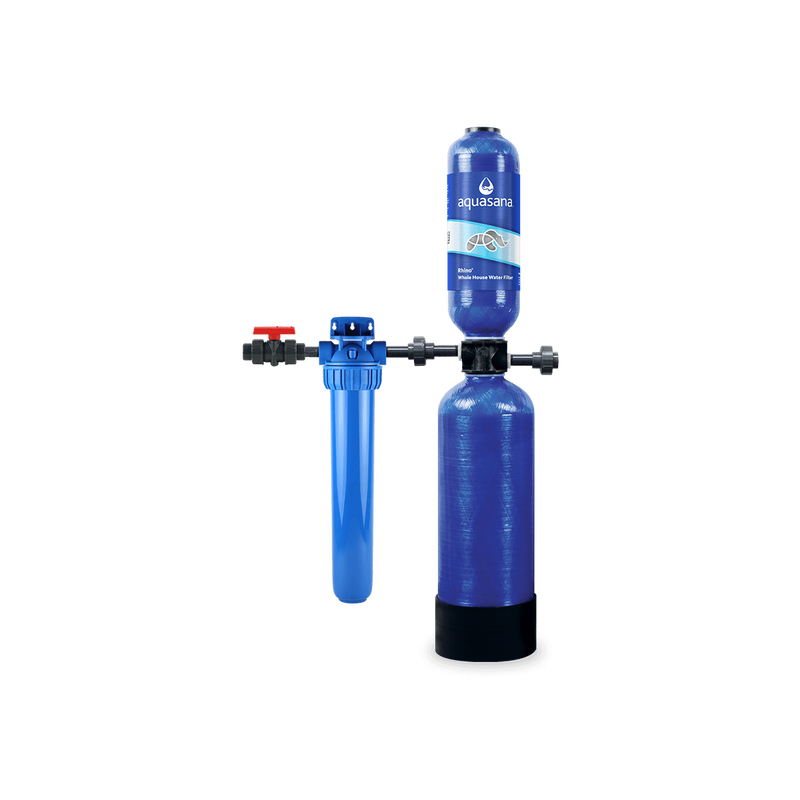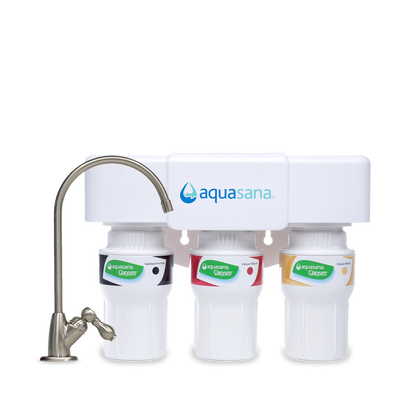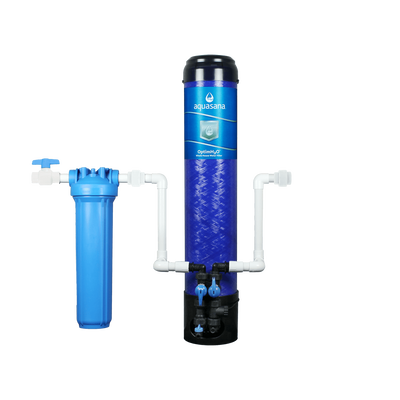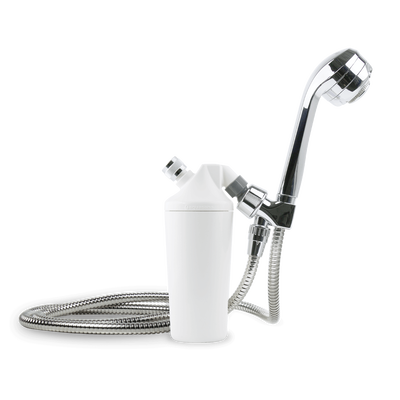Countertop water filters
Countertop water filters offer great filtration and convenience, as these systems can be installed exactly where you want such as within your kitchen. In fact, some countertop water filters can be attached directly to your faucet while others can be placed elsewhere if you’re lacking space by your sink.
While countertop water filters do offer a great level of filtration, it should be noted that they typically aren’t as powerful as whole house or under sink systems. As such, if you’re looking for maximum contaminant removal, you may want to consider other options.
Under sink water filters
Under sink water filters offer similar convenience to countertop filters, but are installed below the sink which means they’re out of sight and you gain more countertop space.

They also typically offer greater filtration performance, as many use a combination of activated carbon/catalytic carbon, plus ion exchange to capture and prevent those pesky contaminants from entering your water, like chlorine, chloramines, heavy metals, chlorine-resistant cysts like giardia and cryptosporidium, pharmaceuticals, and more.
What is a water purifier?
Water purifiers serve a similar function as water filters, as both remove impurities. However, water purifiers go a step further by killing biological contaminants and removing minerals from water. This is done via two methods of purification:
- Reverse osmosis (RO)
- Distillation
- UV Treatment
Reverse osmosis works much like a filter, but instead of using contaminant-grabbing media, it forces all water particles through a very small semi-permeable membrane. By forcing the water through this semi-permeable membrane (think of the whites of an egg), it screens out all particles that were too big to follow the pathway of the water.
Distillation is when water is boiled and the steam is captured. The steam then gets collected and purified. Finally, UV treatment is when water is subjected to ultraviolet light that kills living organisms including viruses.
While water purification offers the most contaminant removal, it may not be the best option for you. For example, an RO purifier will remove minerals including healthy ones, so you’d either need to purchase one with a remineralizer or consider other options. Additionally, a UV purifier will only remove microorganisms, but you’d need to use it in conjunction with a traditional water filter to remove sediment.
Water filter vs. water purifier
At the end of the day, purification as it currently functions is a process best left to the science lab. But if you’re still set on water purification, find a reverse osmosis system that purifies your water and also comes with a remineralizer.
For those looking to filter or purify your water, Aquasana has many great, affordable options to protect you and your family from contaminants in your home. Our multi-process water filtration systems remove the negative contaminants you do not want while leaving the healthy minerals that you do want, and our reverse osmosis system uses NSF certified Claryum® filtration technology, as well as a remineralizer, so you can drink with peace of mind. Looking for a filtration method? Aquasana offers a line of whole house, shower, countertop, and under sink water filters that also reduce all of the bad and leave in all of the good minerals your body craves. Because drinking clean, healthy water means finally drinking with confidence.

.png)


